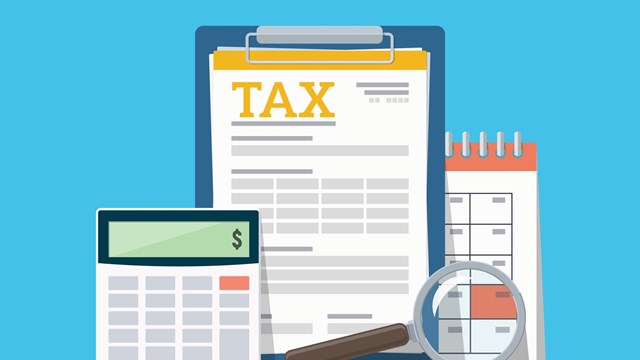Tax time is coming soon, and a time no one really enjoys will likely be even less fun thanks to the current recession. In the case of condo and co-op buildings however, accountants and attorneys may be able to help the communities they represent save money during the tax season. They can do this by making sure they’re assessed properly and, in the event of an error, by challenging these assessments via a tax certiorari proceeding through the New York City Tax Commission.
A Word on Taxes
In New York City, tax certiorari proceedings are usually handled by experienced attorneys who work on a contingency basis. In most cases, these attorneys are paid between 12 and 20 percent of the co-op or condo’s actual tax savings, if they’re successful in recouping money for the association.
What residential classifications do co-op and condos fall under for tax purposes? Co-ops and condos are in Class 2, a category that includes all residential rental property other than those in 1, 2, or 3-family houses, according to attorney Marty Friedman, a partner in the firm of the Manhattan-based law firm of Sonnenschein, Sherman & Deutsch. (Hotels and motels are considered commercial property, he adds).
Attorney Paul Korngold of Tuchman Korngold Weiss Lippman & Gelles LLP in Manhattan, elaborates that condos and co-ops pay within the Class 2 tax rate, which has been set a 12.139 percent for the 2008-09 fiscal year. “Because of the date, the tax rate was set,” he says. “Taxpayers were billed on the lower 2007-08 rate of 11.928 percent for the first half of 2008-09. Therefore, the tax will go up in the beginning of 2009.”
Co-ops and most condos that have 10 or fewer units are in a special tax class known as 2-C. Their tax assessments, although not their local taxes, may be increased by only eight percent per year, and no more than 30 percent in any 50-year period. There is an exception for alterations, so if a co-op adds a penthouse, it’s not protected by the caps.
‘To Review’
Now, for that strange, foreign-sounding word, “tax certiorari.” What does it mean? Is it some sort of Latin term found in Julius Caesar’s account of the Gallic wars?
Well it is Latin in origin, but the concept is different. Certiorari, according to Manhattan-based attorney William E. Banfield, CRE, of Podell Schwartz Schechter & Banfield, merely means “to review.” In its best-known meaning, a “writ of certiorari” means a writ issuing from a superior court calling up the record of a proceeding in a lower court for review.
But for the purposes of this article, explains CPA Joseph Cavalcante of Cavalcante & Company (which has offices in Brooklyn and Manhattan,) a tax certiorari is a proceeding to challenge the assessed value of real property to eventually get a reduction in real estate taxes. Four things that can be looked at for a favorable outcome, he says, are inequality, misclassification, exemption and excessiveness. Taxpayers, adds Banfield, can present information to the Department of Finance, to the Tax Commission or in court to review assessments.
A petition to the Tax Commission is generally filed by the beginning of March, and an answer is generally received by September of that year. The attorneys who engage in this type of legal procedure are often referred to as “certiorari attorneys,” and are hired by the co-op or condo board or manager.
According to New York City Tax Commission president Glenn Newman, thousands of homeowners represent themselves at Tax Commission hearings accompanied by a variety of professionals—not only attorneys, but also accountants, appraisers and other real estate pros.
Friedman adds that if you don’t get a favorable hearing from the Tax Commission, you can always “file a petition on the Tax Commission,” a procedure akin to serving a lawsuit. Then, if the matter is still pending after two or three years, you can go to the Law Department and file further documents.
But, Friedman emphasizes, “If you do get an offer of reduction [from the Tax Commission] you settle it, and that’s the end of it.”
The Tax Commission
Of course, for a description of the Tax Commission, there is no better source than the commission itself. Newman describes it as “the administrative body that reviews real property tax assessments issued by the Department of Finance and provides personal hearings at which taxpayers may present evidence of the value of their properties. An application for correction must be filed with the Tax Commission in order to preserve the right to appeal the assessment in the courts of New York State.”
In addition to the president, currently Newman, the commission includes six part-time commissioners—at least one from each borough—appointed by the mayor and confirmed by the City Council.
Assessments — How They’re Done
Appeals aside, exactly how are condos and co-op buildings assessed for tax purposes?
The answer might surprise you. Co-ops and condos are taxed as if they were rental properties, pursuant to Section 581 of the New York Rental Property Law. Among the factors taken into account are comparable income from a rental building, size, square footage, and whether the building has stores or offices.
“A market value is determined,” says Cavalcante, “and is multiplied by 45 percent to obtain the assessed value, which is then multiplied by the tax rate. Then, the real estate tax expense is spread among the shareholders on a per-share basis as part of their monthly maintenance charges.”
If all this sounds bizarre to you, the reason it’s done this way, says Korngold, is because if the city just added up the sales prices of the units, “in almost every case it would produce a much higher value for tax purposes.”
As we’ve mentioned before, if the taxpayer (in this case the condo or co-op) is not satisfied with the results of the Tax Commission, he has the right to pursue the matter through the legal system.
But you should remember that, as Korngold reminds us, “Virtually no co-op or condo has tried a case in court for the past 20 years. The overwhelming majority [of disputes] are settled. Remember, just because your taxes are high does not necessarily mean that you are overassessed.
Seeking an Abatement
Another way of getting around the tax burden for co-ops and condos is seeking a tax abatement, which is defined as a reduction of taxes or an exemption from taxes granted by a local government on a piece of real property for a specified length of time.
If a co-op or condo is seeking an abatement, the application is filed on behalf of the entire development, and only the co-op or condo’s board or managing agent can file the abatement application.
Individuals, however, can also apply by completing the Exemption and Abatement Application for Owners. This abatement is available to all residential co-op and condo units, except for units owned by the sponsors, or owned by people who own more than three units in the development, or those used for non-residential purposes.
Co-op and condo boards or their managing agents must file abatement applications by Feb. 15, 2009. Individual owners or shareholders that complete the Exemption and Abatement Application for Owners can apply throughout the year. However, if the application is received by January 5, then benefits can begin in July.
In general, says Friedman, the co-op and condo tax abatement program “provides a partial tax relief in tax assessments between residential Class 2 properties (including co-ops and condos), which are assessed at 45 percent of rental value, and one-, two- and three-family houses, which are assessed at six percent.” This tax disparity has long been the object of complaints by the co-op and condo community.
Korngold gives some more elaboration on the mechanics of tax abatements. “Co-ops and condos must file an application with the Department of Finance to qualify for the co-op and condo abatement. This law was recently extended for four more years through June 30, 2012. Co-ops and condos assessed for tax purposes at $15,000 or less per dwelling unit are entitled to get an annual abatement of 25 percent of their taxes; buildings in excess of $15,000 per dwelling unit get a rebate of 17.5 percent.”
Buildings with 42-1a-, 421-g or J-51 tax exemptions are not eligible, but buildings with only a J-51 abatement remain eligible. Buildings with such exemptions should examine on an annual basis whether they should waive their 421-s, 421-g of J-51 tax exemption if the co-op or condo abatement is higher.
If this language is confusing to you (or even if it isn’t), you should consult an expert. “Perhaps the most sensible approach is to consult wit a professional early and often and, in the case of matters involving the practice of law, that professional,” says Banfield, “would be an attorney.”
Ranaan Geberer is a freelance writer and editor living in New York City.







Leave a Comment